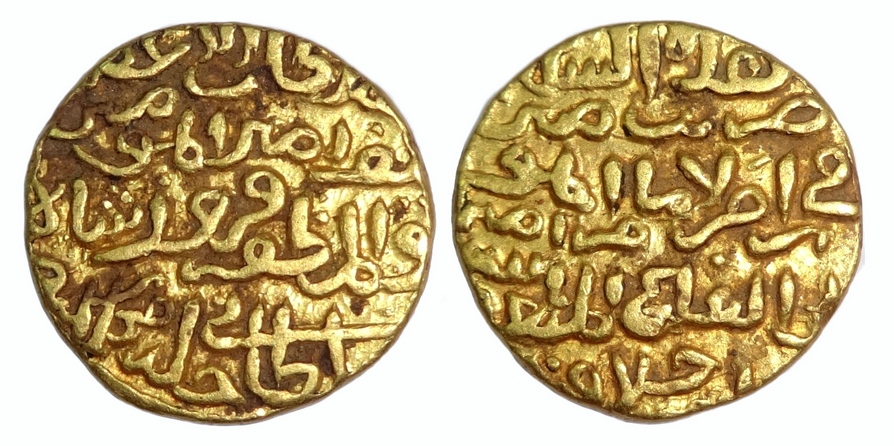Richard Eaton: "Temple desecration and Indo-Muslim states, Essays on Islam and Indian History." And: "Temple desecration in pre-modern India"
Firuz Schah Tughluq: Zitate auf Englisch
Delhi and Environs , Elliot and Dowson, History of India as told by its own Historians, 8 Volumes, Allahabad Reprint, 1964. Elliot and Dowson. Vol. III, p. 380-81
Quotes from the Futuhat-i-Firuz Shahi
Shams Siraj Afif cited in Lal, K. S. (1994). Muslim slave system in medieval India. New Delhi: Aditya Prakashan. Chapter 12
Puri (Orissa) .Tarikh-i-Firuz Shahi, Elliot and Dowson, History of India as told by its own Historians, 8 Volumes, Allahabad Reprint, 1964. Elliot and Dowson. Vol. III, p. 313 ff
Sultãn Fîrûz Shãh Tughlaq (AD 1351-1388)
Tabqãt-i-Akharî by Nizamuddin Ahmad.
Nagarkot Kangra (Himachal Pradesh) . Tarikh-i-Firuz Shahi, Elliot and Dowson, History of India as told by its own Historians, 8 Volumes, Allahabad Reprint, 1964. Elliot and Dowson. Vol. III, p. 318 ff
Shams Siraj Afif quoted in Lal, K. S. (1994). Muslim slave system in medieval India. New Delhi: Aditya Prakashan. Chapter 10
Tarikh-i-Firishta, translated into English by John Briggs under the title History of the Rise of the Mahomedan Power in India, 4 Volumes, New Delhi Reprint, 1981. p. 263 Vol I.
Variante: From thence the King marched towards the mountains of Nagrakote, where he was overtaken by a storm of hail and snow. The Raja of Nagrakote, after sustaining some loss, submitted, but was restored to his dominions. The name of Nagrakote was, on this occasion, changed to that of Mahomedabad, in honour of the late king. Some historians state, that Feroze, on this occasion, broke the idols of Nagrakote, and mixing the fragments with pieces of cows flesh, filled bags with them, and caused them to be tied round the necks of Bramins, who were then paraded through the camp. It is said, also, that he sent the image of Nowshaba to Mecca, to be thrown on the road, that it might be trodden under foot by the pilgrims, and that he also remitted the sum of 100,000 tunkas, to be distributed among the devotees and servants of the temple.
Vincent Arthur Smith, The Oxford History of India: From the Earliest Times to the End of 1911 (Clarendon Press, 1920), as quoted in Spencer, Robert (2018). The history of Jihad: From Muhammad to ISIS.
Quotes from the Futuhat-i-Firuz Shahi
Firoz Shah Tughluq, FuthuHât-i Firozshâhi, ed. by Shaikh Abdur Rashid, Aligarh, 1954, pp. 16-17. Quoted from Harsh Narain, (1990). Jizyah and the spread of Islam.
Quotes from the Futuhat-i-Firuz Shahi
Shams Siraj Afif quoted in Lal, K. S. (1992). The legacy of Muslim rule in India. New Delhi: Aditya Prakashan. Chapter 4
Vincent Arthur Smith, The Oxford History of India: From the Earliest Times to the End of 1911 (Clarendon Press, 1920), as quoted in Spencer, Robert (2018). The history of Jihad: From Muhammad to ISIS.
Quotes from the Futuhat-i-Firuz Shahi
The historian who witnessed this scene himself expresses his satisfaction by saying, “Behold the Sultan’s strict adherence to law and rectitude, how he would not deviate in the least from its decrees.”
Quoted from Goel, Sita Ram (2001). The story of Islamic imperialism in India. ISBN 9788185990231
Futuhat-i-Firoz Shahi quoted from Lal, K. S. (1992). The legacy of Muslim rule in India. New Delhi: Aditya Prakashan. Chapter 4
Quotes from the Futuhat-i-Firuz Shahi
Jajnagar (Orissa) . Insha-i-Mahru by Ãinud-Din Abdullah bin Mahru, Translated from the Hindi version by S.A.A. Rizvi included in Tughlaq Kalina Bharata, Aligarh, 1957, Vol. II, p. 380-82. In Goel, S.R. Hindu Temples - What Happened to them
Shams Siraj Afif quoted in Lal, K. S. (1994). Muslim slave system in medieval India. New Delhi: Aditya Prakashan. Chapter 5
Puri (Orissa). Sirat-Firuz Shahi, quoted in R.C. Majumdar (ed.), Vol. VI, The Delhi Sultanate, Bombay, Majumdar, R.C. (ed.), The History and Culture of the Indian People: Volume VI: The Delhi Sultanate, Bombay, 1960.
S.R. Goel, The Story of Islamic Imperialism in India
Lal, K. S. (1992). The legacy of Muslim rule in India. New Delhi: Aditya Prakashan. Chapter 7
Tughlaq Kalina Bharata, Persian texts translated into Hindi by S.A.A. Rizvi, 2 Volumes, Aligarh, 1956-57. p. 349 ff Vol II.
Shams Siraj Afif, quoted from Lal, K. S. (1992). The legacy of Muslim rule in India. New Delhi: Aditya Prakashan. Chapter 6 https://archive.org/stream/cu31924073036737#page/n381/mode/2up
Delhi. Tarikh-i-Firuz Shahi, Elliot and Dowson, History of India as told by its own Historians, 8 Volumes, Allahabad Reprint, 1964. Elliot and Dowson. Vol. III, p. 365 ff https://archive.org/stream/cu31924073036737#page/n379/mode/2up Quoted in Shourie, Arun (2014). Eminent historians: Their technology, their line, their fraud. Noida, Uttar Pradesh, India : HarperCollins Publishers.
Gohana (Haryana) , Elliot and Dowson, History of India as told by its own Historians, 8 Volumes, Allahabad Reprint, 1964. Elliot and Dowson. Vol. III, p. 381
Quotes from the Futuhat-i-Firuz Shahi
Shams Siraj Afif, quoted in Lal, K. S. (1999). Theory and practice of Muslim state in India. New Delhi: Aditya Prakashan. Chapter 3
Elliot and Dowson, History of India as told by its own Historians, 8 Volumes, Allahabad Reprint, 1964. Elliot and Dowson. Vol. III, p. 328
Quotes from the Futuhat-i-Firuz Shahi
Sita Ram Goel: The Story of Islamic Imperialism in India
